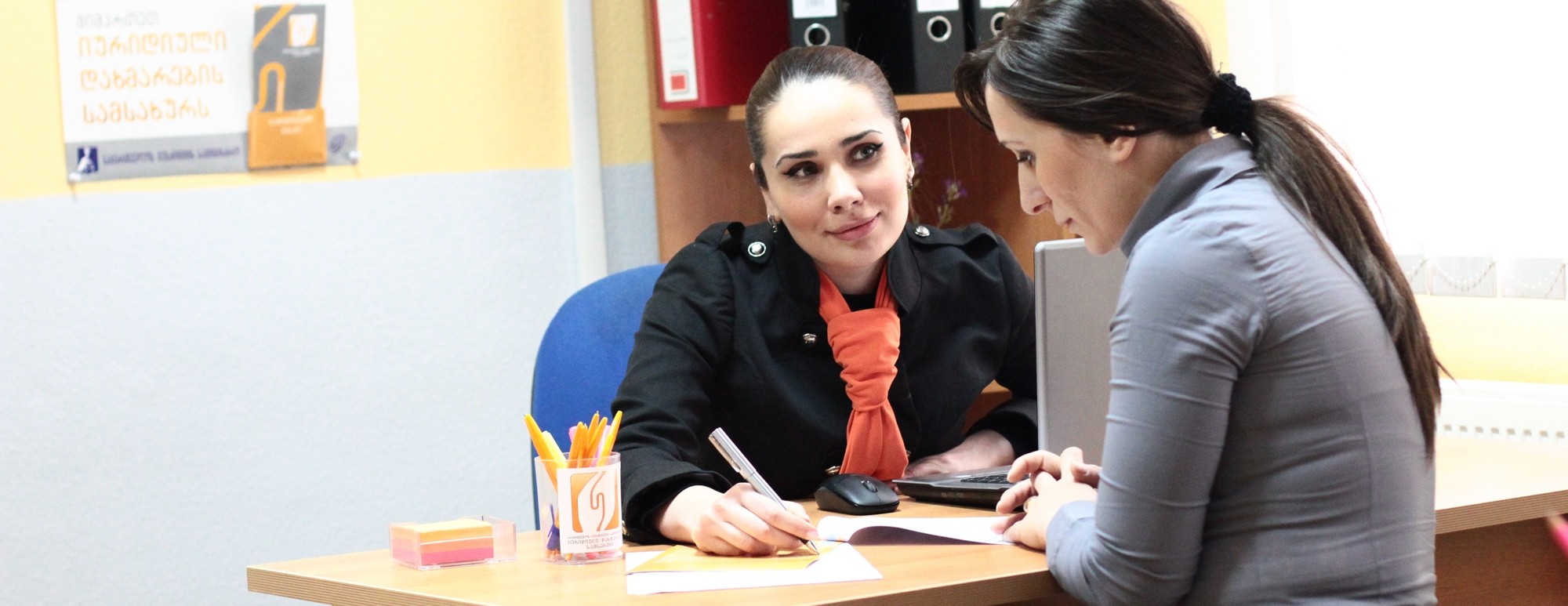Georgia's Law on Legal Aid implies 2 categories of service:
- Legal consultations;
- Legal aid.
Legal consultations imply legal advice on any problematic issues.
Legal aid is mainly rendered to insolvent persons and implies:
- Drafting of legal documents;
- Free advocacy service on the following issues:
- Mandatory defense;
- Legal aid in criminal proceedings;
- Legal aid for juveniles;
- Legal aid for victims of domestic violence;
- Legal aid for victims of violence against women;
- Legal aid in family disputes;
- Legal aid in inheritance disputes;
- Legal aid for IDPs;
- Legal aid in social protection issues;
- Legal aid in pension issues;
- Legal aid for persons seeking a status of “beneficiary of support”;
- Legal aid in cases related to patients’ rights;
- Legal aid for veterans;
- Legal aid in cases of involuntary psychiatric treatment;
- Legal aid in cases of disciplinary proceedings against prisoners;
- Legal aid in cases entailing administrative arrest;
- Legal aid for asylum seekers;
- Legal aid in cases related to social rights of former civil servants and scientist;
- Legal aid for families of the servicemen dead or lost during the military operations;
- Legal aid in cases of involuntary isolation of the diseased persons;
- Legal aid in cases related to social rights of victims of political repressions;
- Legal aid in cases related to social rights of persons with disabilities.

